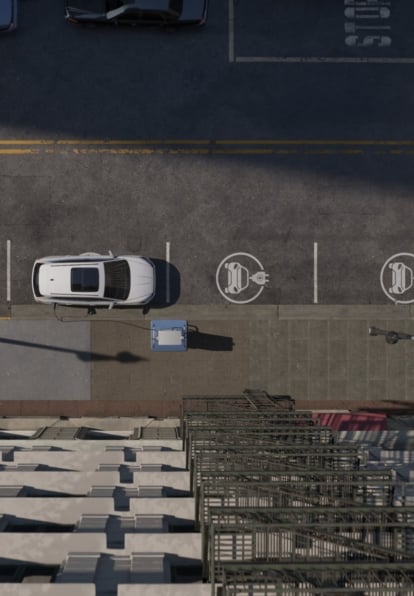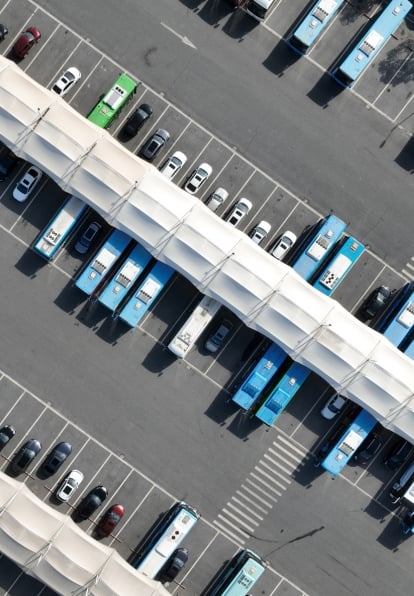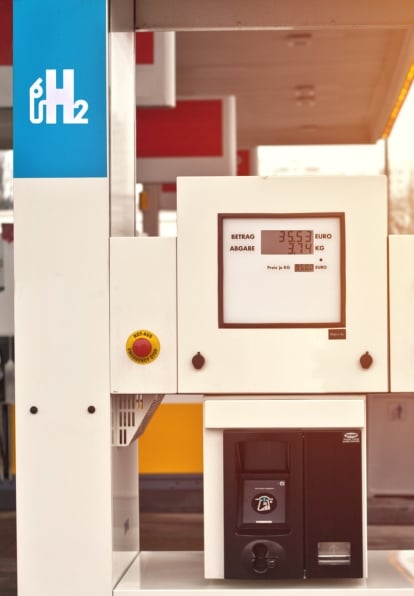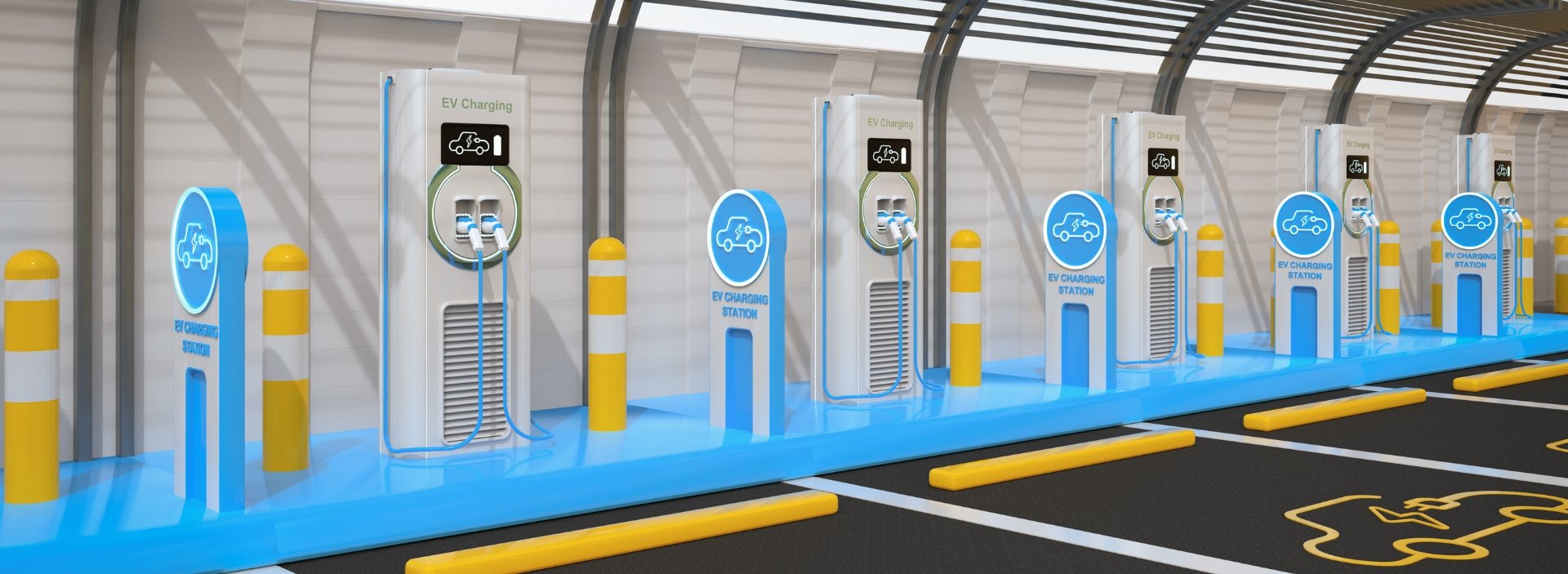
We use evidenced based analysis to help our clients to address the challenges of on-street charging, such as limited space and equitable access for residents. We conduct thorough site assessments and engage with local stakeholders to develop strategic plans and funding application advice to facilitate EV charging provision.
We have developed our own in-house forecasting tool, EV Ready, which takes the guesswork out of where and when to install EV chargers and has been helping our clients make key decisions on their own EV journeys.
By integrating charging stations with existing street furniture and leveraging smart technology, we aim to support our clients to create an accessible EV ecosystem within minimal street clutter that meets the needs of residents and other key stakeholders.
We can plan and design an EV charging infrastructure for commercial and retail properties by strategically placing charging stations in attractive and viable locations. Ensuring accessibility for shoppers and employees alike, EV charging facilities are now a must-have for EV driver convenience. This encourages longer visits, which can increase foot traffic and sales.
We advocate safe and efficient EV charging infrastructure, while being easy to maintain and less costly to run. We ensure that our building EV charging infrastructure meet today’s requirements, while having the flexibility to adapt to future needs.
For property owners, the installation of EV chargers enhances the property's value and sustainability credentials, attracting eco-conscious tenants and consumers and can generate new revenue streams through charging fees, while improving the property's value.
We assist clients by advising on challenges like fluctuating user demand and the need for seamless integration with existing facilities.
By collaborating with clients, we analyse traffic patterns and customer behaviour, in addition to using our EV Ready modelling tool, to specify and design charging solutions that enhance the user experience.
Our focus is on recommending scalable infrastructure that not only supports EV users but also drives foot traffic and increases revenue for local businesses.
For open parking facilities that are associated with buildings (i.e offices, retail parks etc), we consider the type of premises and ensure that compliance with local planning requirements and Building Regulations is achieved.
For motorway service areas, we address high energy demands and the need for rapid turnaround times. By analysing traffic patterns, we identify optimal charging station placements and recommend robust infrastructure capable of handling peak usage.
Integrating renewable energy sources and smart charging technology, we ensure that service areas can provide fast, reliable charging solutions that enhance strategic road network (SRN) user convenience and support the growing EV market in the UK.

We tackle challenges related to fleet scheduling, infrastructure costs, and energy demands to help ensure electric buses operate efficiently, supporting the UK's transition to sustainable public transport.
We analyse route patterns and operational needs to develop customised charging solutions that optimise vehicle downtime and minimise cost.
We have worked with clients to create charging systems that balance the need for efficient overnight depot charging facilities with the flexibility for strategically placed high-powered opportunity chargers to meet operational demands. We have experience integration all types of charging including high-power pantographic chargers.
For fleet and logistics hub charging solutions, we focus on high reliability and low vehicle dwell times. We conduct comprehensive energy audits to tailor charging solutions to specific fleet needs. By proposing on-site fast charging infrastructure and smart energy management systems, we enable fleets to optimise their operations and transition smoothly to electric vehicles while maintaining or improving productivity.
In support to the UK government Jet Zero strategy, our dedicated team comprises of industry specialists with backgrounds in aviation transport planning, transport operations, strategic advisory and the implementation, management and delivery of real-world fleet operations.
We work across both the public and private sectors serving a range of aviation clients and stakeholders including; national government bodies, local authorities, planning & environmental authorities, and third parties like ground service operators.
By transitioning to electric vehicles, sustainable fuel sources, and energy-efficient infrastructure, airports can significantly lower their airside and landside operational carbon footprint. This enhances environmental sustainability and meets increasing regulatory pressures on emissions. Additionally, decarbonisation improves air quality around airports, benefiting surrounding communities.
We offer a wide range of services including the development of implementation strategies, fleet assessment studies and a holistic set of planning and design capabilities.
The decarbonising maritime port operations helps reduce emissions from ships, cargo handling, and port logistics, leading to cleaner air and a reduced environmental impact. Ports can transition to renewable energy, use electric or hydrogen-powered cranes, and adopt sustainable fuels for vessels, reducing the reliance on fossil fuels.
This contributes to global climate goals and enhances the port’s compliance with environmental regulations. By embracing decarbonisation, ports improve operational efficiency, lower fuel costs, and attract eco-friendly shipping companies. Sustainable practices boost the port’s reputation, enhance community relations, and future-proof operations against evolving environmental standards and policies.
We can design an EV charging infrastructure for residential properties with shared facilities by prioritising equitable access to charging for all users, ensuring chargers are strategically placed to accommodate various needs.
To mitigate the impact and cost we aim to integrate seamlessly with the building's existing energy management system, optimising energy use and reducing the likelihood of necessitating electrical supply upgrades.
This integration ensures that charging demand is balanced with building-wide energy requirements, preventing overloading and enhancing efficiency. Safety is also a key focus, with chargers designed to meet the highest standards, including fire detection and suppression, surge protection and remote monitoring systems to detect & report faults, ensuring a safe, reliable charging experience for all residents.

Technologies for the utilisation of hydrogen for Zero Emission Vehicles (ZEVs) can be split into fuel-cell electric vehicles (FCEVs) or hydrogen internal compression engines (H2-ICEs). Both technologies have quicker refuelling times and increased range than battery electric vehicles, as well as are better suited for cold climates. H2-ICEs also have the additional high-power requirements required for the harsh operating conditions that heavy-duty vehicles like mining trucks are exposed to.
The Challenge: Battery electric vehicles are considerably more energy efficient than hydrogen powered vehicles with an energy loss of 20% compared to 35-40% for FCEVs.
The Solution: The creation of hydrogen highways – networks along long-range trucking hubs with focus on the Class 8 and intensive Class 6 applications, that capitalise on the quick refuelling, lightness and range benefits of hydrogen.
Within larger municipalities, development can take the form of centralise hubs to support FCEV fleets across transit and waste management, where frequent stop-and-starts combined with variable loads are proving to be taxing on batteries. By increasing the utilisation across these markets, in addition to government subsidies, hydrogen costs could be lowered to parity with diesel.

Transitioning to zero-emission mobility isn’t just about switching technologies—it’s about understanding how people move, live and connect. Our whole-system approach ensures the infrastructure we deliver is inclusive, resilient, and aligned with long-term sustainability goals.
Infrastructure
Infrastructure Planning - Charging Network Design:
We can design an efficient and scalable EV charging infrastructure network, considering factors like urban planning, traffic patterns, and accessibility.
Integration with Existing Infrastructure:
We can identify opportunities to integrate EV charging stations seamlessly with existing transport infrastructure, minimising disruptions and optimising space.
Policy and Regulation
Guidance on Regulatory Compliance:
We can provide insights into the regulatory landscape, ensuring that projects align with local and national policies related to sustainability and electric mobility.
Policy Advocacy:
We can collaborate with policymakers to advocate for policies that support EV adoption, such as incentives, zoning regulations, and planning permissions for charging stations.
Energy Management
Renewable Energy Integration:
We can advise on integrating renewable energy sources into charging infrastructure, reducing the overall carbon footprint of EVs and enhancing sustainability.
Smart Grid Solutions:
We can contribute to the development of smart grid solutions that optimise energy distribution for EV charging, ensuring efficient use of resources.
Data Analysis
Traffic and Usage Patterns:
We can analyse traffic and usage patterns to strategically locate charging stations, optimising their placement for maximum utilisation and accessibility.
User Behaviour Studies:
We can conduct studies on user behaviour, helping to design user-friendly charging solutions that align with the preferences and needs of the community.
Technological Integration
Advanced Charging Technologies:
We can stay abreast of emerging technologies in EV charging and advise on the integration of advanced solutions, such as high-speed charging and wireless charging, to enhance the user experience.
IoT Integration:
We can explore the integration of the Internet of Things (IoT) for real-time monitoring and management of charging stations, improving reliability and efficiency.
Public Engagement
Community Outreach:
We can engage with local communities to address concerns, provide information on the benefits of EV adoption, and incorporate public feedback into planning processes.
Education Programs:
We can develop educational programs to raise awareness about sustainable transport and the advantages of transitioning to electric vehicles.
Project Management
Execution Oversight:
We can manage the end-to-end implementation of EV infrastructure projects, ensuring that timelines are met, budgets are adhered to, and quality standards are maintained.
Stakeholder Collaboration:
We can facilitate collaboration among various stakeholders, including government bodies, private companies, and the public, fostering a cohesive and coordinated effort towards decarbonisation.
Decarbonising transport at scale means thinking beyond vehicles. It demands a joined-up approach across energy, infrastructure and mobility planning. We’re building the grid capacity and resilience needed to power the UK’s transition to net zero.
Contact an expert














